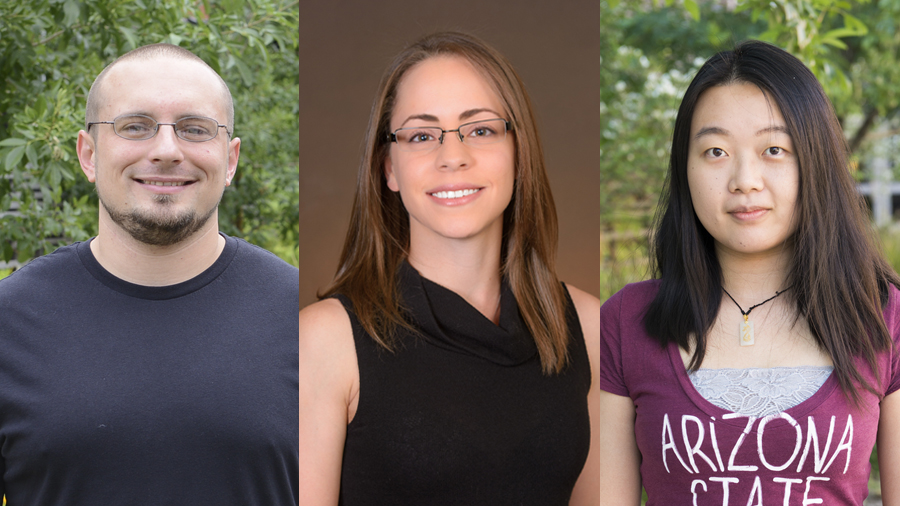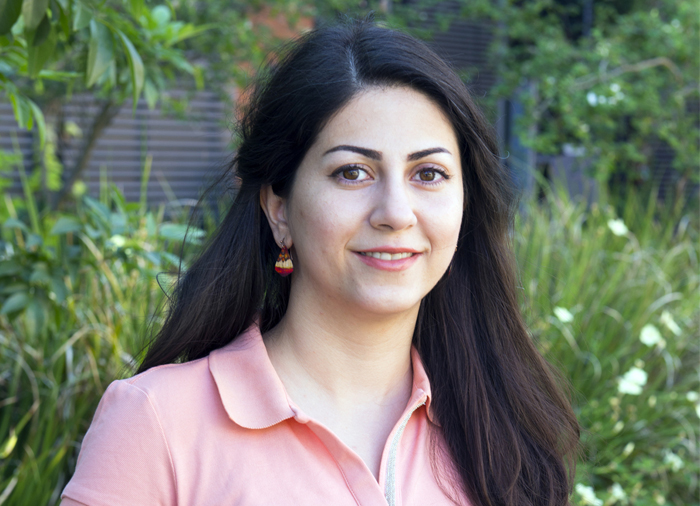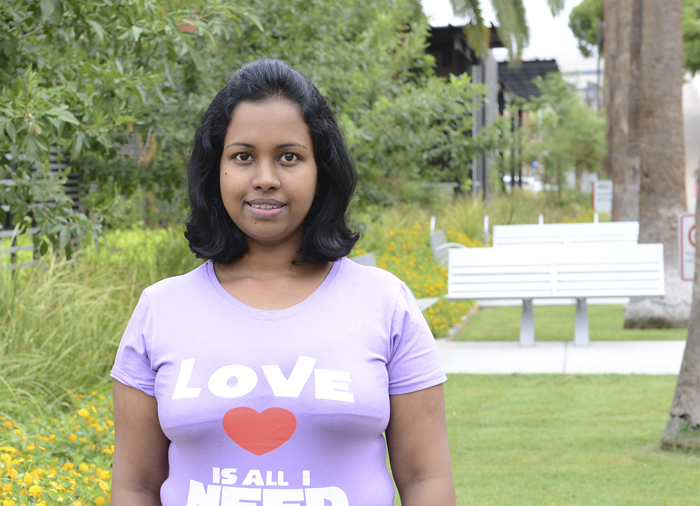ASU molecular sciences graduate students excel
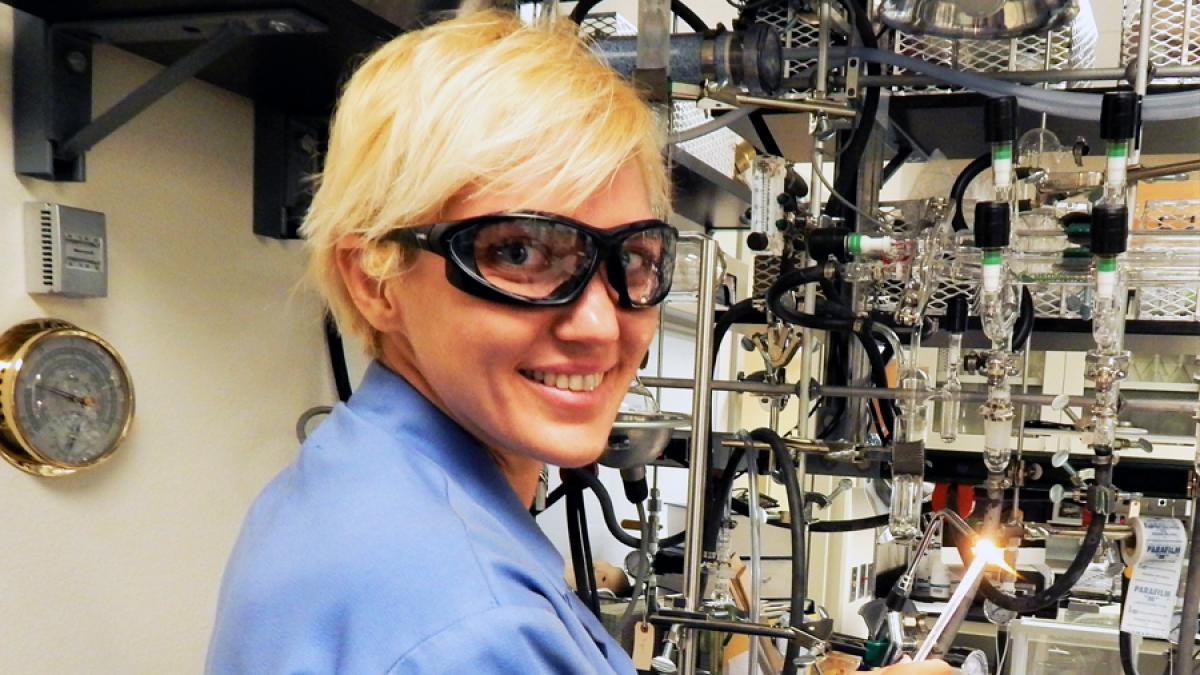
Anna Beiler from Professor Gary Moore’s lab.
Ranging from diverse areas such as cancer research to energy storage, Arizona State University's School of Molecular Sciences graduate students’ research efforts have been rewarded with top recognition.
Anna Beiler (pictured below), has won a College of Liberal Arts and Sciences (CLAS) Graduate Excellence Award. Beiler, whowho works in Professor Gary Moore’s lab, conducts use-inspired research to design new methods and materials for harvesting the power of the sun in the form of fuels.
“Fuels possess a relatively large power density and are essential to modern transport systems,” Beiler said. “By integrating energy capture, conversion, and storage in a single material, land and resource needs can be minimized while converting a temporally transient energy source, the sun, into chemical fuels that can be deployed on demand.”
Beiler's thesis project is specifically focused on methods to interface molecular catalysts that can produce fuels, such as hydrogen or reduced forms of carbon dioxide, with visible-light absorbing semiconductors.
Another recipient of the CLAS Graduate Excellence Award is graduate student Shannon Hilton: “My research involves generating a new tool to find resistant pathogens immediately with very low cost,” she said. “It is based on separating antibiotic resistant and susceptible bacteria using a technique called dielectrophoresis.”
Learning if an infection is resistant to antibiotics is extremely important to help patients and control outbreaks of truly scary pathogens.
Since the use of antibiotics to fight bacterial infections began, bacterial resistance to their efficacy has been growing and is now a major problem. Hilton explained that it is improper use of antibiotics that has been a major factor in this developing resistance. Current methods to determine bacterial susceptibility to a given antibiotic take 24 hours or more. A dielectrophoretic test takes minutes, and could help lead to the correct antibiotics being administered earlier in treatment. This would have twin benefits for the patient — getting healthy faster, and growing of antibiotic resistance more slowly. Hilton's supervisor is Professor Mark Hayes.
Three more CLAS Graduate Excellence Awards have been received by Christopher Gisriel, Denise Napolitano and Ran Zhao who are supervised by Kevin Redding, Pierre Herckes and Candace Chan respectively.
Gisriel's research aims to understand how photosynthesis may have worked before oxygen entered Earth’s atmosphere, and how it has evolved ever since.
“To do this, we combine biology, biochemistry, and biophysics, to gain an understanding of the structure and function of a protein called a reaction center,” he said. “Whereas all photosynthetic organisms contain reaction centers, we study the reaction center from primitive bacteria that only thrive in the absence of oxygen. Its reaction center is considered to function in a fashion similar to that of the ancient ancestor of all reaction centers. This gives us insight into photosynthetic metabolism more than 3 billion years ago, and allows us to make hypotheses about how photosynthesis evolved into the broad diversity and complexity that is observed in modern plants and other oxygenic photosynthetic organisms.”
Napolitano is studying the composition and sources of atmospheric particles and the role that fog and clouds play in the formation of secondary organic particulate matter through the analysis of natural stable isotopes. Particulate matter can affect global and local temperatures through the scattering and absorption of solar radiation, and it can be inhaled and cause respiratory stress and disease.
“I study the processes that form particles by using stable carbon isotope analysis, which can provide information on both the sources of the reaction precursors (such as plants, cars, and factories) and the kinetics of particle formation,” she said. “I have used this technique to observe the variations in biogenic and anthropogenic sources of particles in Phoenix through different seasons and in varying particle size modes. I am also studying the isotopic relationships between fog and particulate matter in samples collected in Davis and Santa Barbara, California, Whistler, British Columbia, and Strasbourg, France to better understand how the amount and composition of particulate matter is affected by the dynamic processes that occur in the presence of fog and in high relative humidity.” This work will help to improve understanding of the sources of organic compounds that have a negative effect on climate and human health.
As the world becomes increasingly reliant on electronic devices, it also becomes more dependent on batteries, especially rechargeable batteries.
“My research focuses on understanding the structural-electrochemical property relationships of materials for applications in energy storage,” Zhao said. “I have studied several mineral-inspired novel polyanion compounds as cathodes and novel silicon and germanium clathrate compounds as anodes for Li-ion batteries. I have also evaluated the properties of a new NASICON type solid electrolyte material for use in Li and Na-ion cells. None of the compounds I have studied were ever investigated before, so the projects are challenging and require many insightful experiments to understand the observations.”
Beiler and Gisriel have also won Achievement Rewards for College Students (ARCS) Foundation Fellowships. The ARCS Foundation is a national organization dedicated to supporting the best and brightest U.S. graduate and undergraduate scholars by providing financial awards in science, engineering and medical research.
Shayesteh Roshdi Ferdosi is a recipient of the CLAS Graduate Excellence Fellowship for First Generation Students.
Ferdosi works for professors Joshua LaBaer and Karen Anderson on translational cancer research.
“My chemistry and biochemistry knowledge has helped me understand cancer biology to discover novel methods for tumor targeting," she said. "My research is highly interdisciplinary and in a collaborative project we bring in bioinformatic tools, medicinal chemistry, cancer biology and immunotherapy to recruit our immune system to target cells with mutations contributing to tumor progression.”
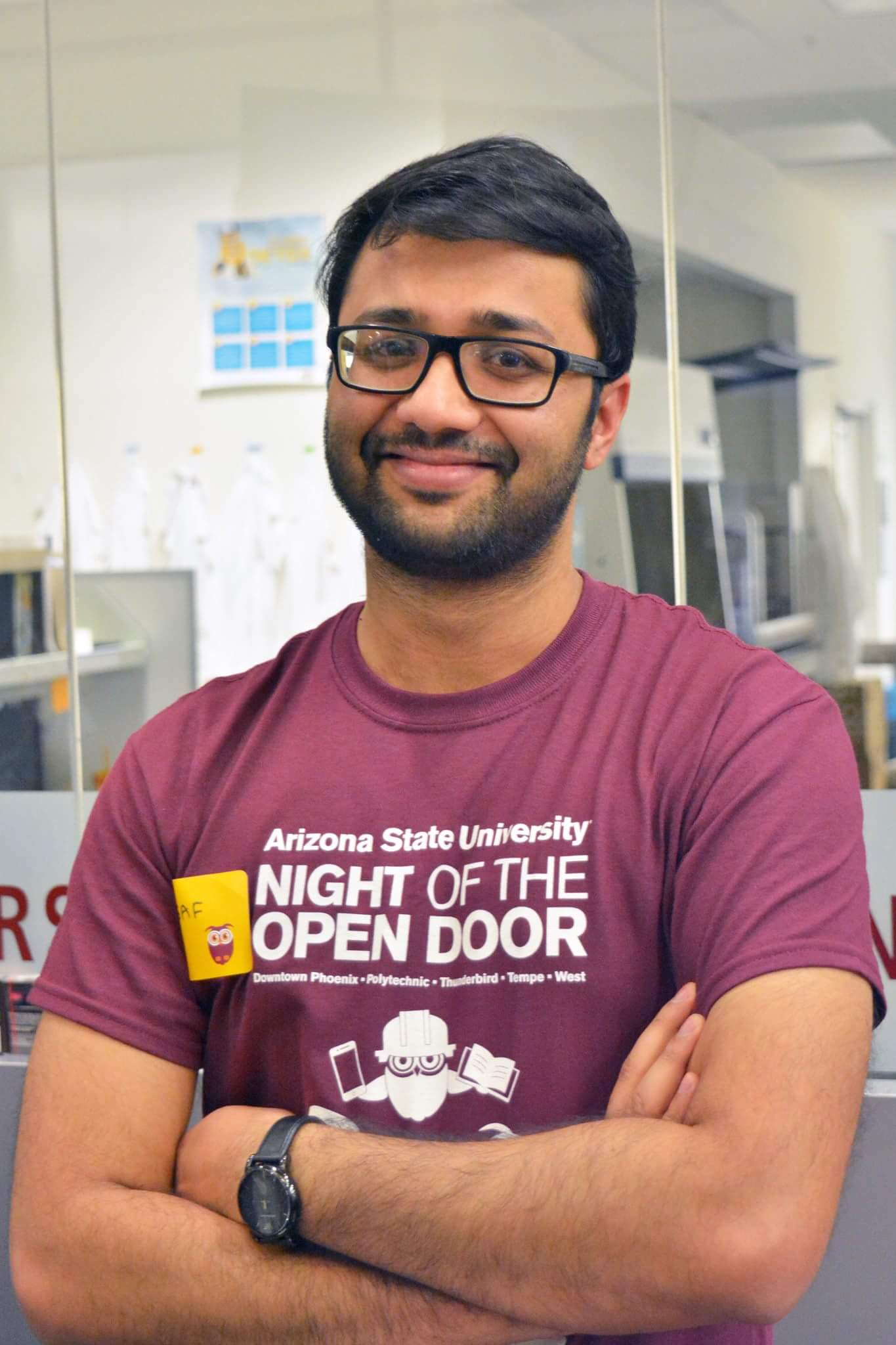
Ahmed Yousaf
Ferdosi also received an award from the ASU Graduate and Professional Student Association (GPSA) for outstanding mentorship. GPSA is the official student government for all ASU graduate and professional students.
Ahmed Yousaf (right) has also received a GPSA outstanding mentorship award: “It was for my work with Pakistani Students Association and ASU's Prison Biology Education Program and for mentoring junior PhD students in the lab,” he said. “I work with Professor Alexander Green on solution-phase processing and applications of two-dimensional materials such as transition metal chalcogenides.”
Clair Crowther has received an award for GPSA assembly member of the year: “My award ... is for my service to the assembly and service on the external affairs committee and as the CLAS committee chairman,” said Crowther, who is also a doctoral student in professor Mark Hayes’s lab.
“Over the past year I had the opportunity to go to conferences about graduate student leadership in Stony Brook, New York and Spokane, Washington. Additionally, I visited Washington D.C. to discuss graduate student issues with Arizona legislators," Crowther said. "Serving as part of the assembly has been a wonderful experience and has taught me a lot about policy that I hope to apply to my career. I currently work on improving the separation of micro and nano sized bioanaltyes for the purposes of improving diagnostic techniques and furthering our understanding of various bioanalaytes.”
A GPSA Teaching Excellence Award has been given to Shanika Abeysooriya for teaching CHM 114 General Chemistry for Engineering Students: “I am a graduate student in Professor Don Seo's lab. My research involves exploratory synthesis of novel metal phosphates. We mainly focus on synthesizing novel solid acids,” she said.
More Science and technology

ASU receives 3 awards for research critical to national security
Three researchers in the Ira A. Fulton Schools of Engineering at Arizona State University have received grant awards under the …
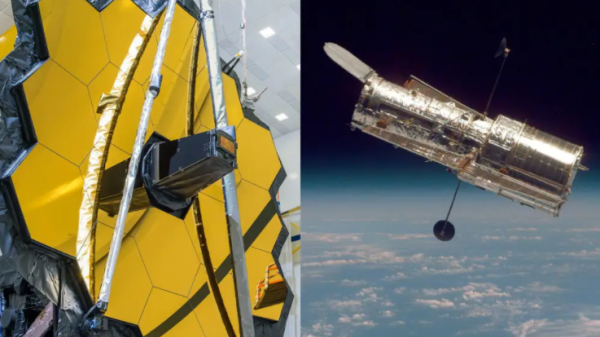
Celebrating 34 years of space discovery with NASA
This year, NASA's Hubble Space Telescope (HST) is celebrating its 34th anniversary of the world's first space-based optical…
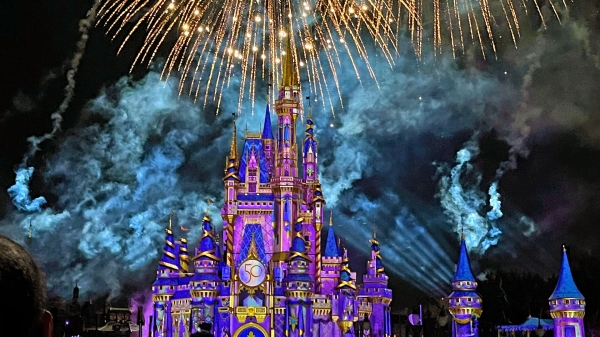
Making magic happen: Engineering and designing theme parks
The themed entertainment industry is widespread and diverse, encompassing everything from theme parks to aquariums, zoos, water…

